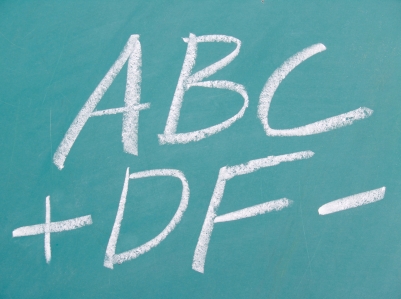Obama’s cave on smog regulations has lots of people mulling his administration’s overall record on climate change and air pollution. A friend wrote recently to ask how I’d rate that record “relative to Bush, relative to the ideal, and relative to what seems realistic politically.”
And that’s just it — relative to what? Turns out I have no simple answer. But of course that won’t stop me from blabbing on for a while.
Like much in American politics, Obama’s green record has become a collective Rorschach blot. Depending on what frame of reference is imposed, he could end up with an A, an F, or anything in between.
Bear with me as I share four bits of background that are important to help contextualize how Obama has performed relative to expectations. My new puppy Forest will help keep you interested:
 Meet Forest!1) U.S. environmental law has a crucial if oddly unremarked feature: it is designed to evolve. The Clean Air Act, Clean Water Act, and other landmark laws from the 1970s contain within them provisions that mandate they be updated to keep pace with the latest science. This has given them extraordinary power and durability. Politically, they are not unlike Social Security and Medicare: conservatives can slow them down, bedevil them at the margins, interfere with their enforcement, but they can’t seem to get rid of them. (There’s a very good paper about this phenomenon of “Green Drift” if you want to dig in — I wrote a bit about it here.) Point being: unless someone actively interferes to stop it, U.S. environmental law automatically progresses. And as political observers know, that’s a good position to be in — it makes the intense status quo bias of American politics work for you rather than against you.
Meet Forest!1) U.S. environmental law has a crucial if oddly unremarked feature: it is designed to evolve. The Clean Air Act, Clean Water Act, and other landmark laws from the 1970s contain within them provisions that mandate they be updated to keep pace with the latest science. This has given them extraordinary power and durability. Politically, they are not unlike Social Security and Medicare: conservatives can slow them down, bedevil them at the margins, interfere with their enforcement, but they can’t seem to get rid of them. (There’s a very good paper about this phenomenon of “Green Drift” if you want to dig in — I wrote a bit about it here.) Point being: unless someone actively interferes to stop it, U.S. environmental law automatically progresses. And as political observers know, that’s a good position to be in — it makes the intense status quo bias of American politics work for you rather than against you.
 He’s so cute.2) For eight years, the Bush administration did everything in its power to weaken, delay, or block the natural evolution of clean air and water laws. Its mercury and smog standards were half-assed and rejected by courts, and it famously refused to open the email EPA sent to kick off the rulemaking process on carbon regulations. When Bush left, EPA was confronted with an enormous backlog of work — regulations that, by law, had to be updated.
He’s so cute.2) For eight years, the Bush administration did everything in its power to weaken, delay, or block the natural evolution of clean air and water laws. Its mercury and smog standards were half-assed and rejected by courts, and it famously refused to open the email EPA sent to kick off the rulemaking process on carbon regulations. When Bush left, EPA was confronted with an enormous backlog of work — regulations that, by law, had to be updated.
3) The Supreme Court’s Massachusetts v. EPA decision, clearing the way for regulation of greenhouse gases under the Clean Air Act, completely shifted the tectonic plates of U.S. environmental policy, in ways not yet well understood by the political class. By bringing greenhouse gases under the rubric of the Clean Air Act, it folded carbon pollution into green drift, making action on GHGs the default rather than something that must be built from scratch. Regulations on CO2 will now go forward unless Congress intervenes to stop them. The Clean Air Act is not the ideal policy tool for the task, but it’s a path forward when there don’t seem to be many others.
 Forest really wants you to keep reading.Taking those three together, it’s clear that any Democratic president elected in 2008 should have been expected to make a considerable amount of progress, not only on conventional pollution but on carbon emissions too. All any president had to do is let it happen and protect it from interference with a veto threat.
Forest really wants you to keep reading.Taking those three together, it’s clear that any Democratic president elected in 2008 should have been expected to make a considerable amount of progress, not only on conventional pollution but on carbon emissions too. All any president had to do is let it happen and protect it from interference with a veto threat.
However, it would not be fair to omit:
4) Obama inherited a truly sh*tty economy and a dysfunctional political system. (Breaking!) Those two things, more than anything specific to environmental policy, created a huge headwind.
So, with that background, how’s he doing?
The best thing Obama could have done for any domestic priority is to appoint a liberal to run the Fed and loosen monetary policy a bit. That would create more jobs, more confidence, and more public openness to new programs. The second best thing would have been to mount a serious effort to get rid of the filibuster. But neither of those happened, and ever since Obama took office he’s been juggling crises.
Nonetheless, he’s had a few big wins. First, the stimulus package the administration helped assemble in early 2009 — however inadequate to the ultimate economic task — contained enough spending on green projects to qualify as the biggest clean energy bill in U.S. history. That’s a significant accomplishment, though we won’t know how significant until it’s clear how much (or whether) the money spurred long-term growth in new, competitive industries. If it’s just a one-time infusion and investment falls off after it runs out, the accomplishment will be downgraded a bit by historians.
Second, new fuel-economy standards the administration pushed through are a genuinely big deal. Economists are always whinging that they’d prefer a hike in the gas tax — and I certainly wouldn’t oppose such a thing! — but CAFE standards are decidedly Better Than Nothing. They were deftly negotiated and will represent by far the largest reduction in greenhouse gases of any Obama initiative, not to mention reductions in smog and particulates, not to mention new jobs. It’s also worth noting that the fuel-economy deal was brought to you by Obama’s great industrial policy triumph, rescuing the American auto industry. (They owed him one.) Also, he more or less created a domestic advanced-battery industry.
Within the more traditional confines of environmental law and policy, Obama started off well by appointing Lisa Jackson to head the EPA and other green leaders to key admin posts, but his record has been mixed since.
 Forest isn’t daunted by MACT talk. He’s still hanging on!A rule to cut mercury and arsenic from industrial boilers (the boiler MACT rule, in wonk parlance) was delayed indefinitely (and possibly illegally) despite being an overwhelming win for public h
Forest isn’t daunted by MACT talk. He’s still hanging on!A rule to cut mercury and arsenic from industrial boilers (the boiler MACT rule, in wonk parlance) was delayed indefinitely (and possibly illegally) despite being an overwhelming win for public h
ealth, potentially preventing upwards of 4,800 premature deaths a year.
Obama just delayed an ozone rule (possibly illegally) despite multiple scientific assessments recommending the same lower standard. The rule would have cut smog levels and prevented hundreds of premature deaths, heart attacks, and missed school days every year. But Obama’s chief of staff bought the stupid logic that squashing it would help in swing states.
Now it’s beginning to look like Obama will bow to pressure and delay rules on carbon emissions [$ub req.], even though, as noted above, Mass v. EPA cleared the way for him to move forward without approval from Congress. [UPDATE: Yep, rules delayed.]
Political “realists” keep telling us that he’s doing these things (complete with concessions to conservative rhetoric on “regulatory uncertainty“) to avoid political attacks he can’t afford. In reality itself, however, conservative attacks have not diminished one iota, and no amount of compromise or capitulation will change that. Right-wingers are going after other EPA rules just as hard, and their narrative about Obama’s “regulatory overreach” has not shifted a bit. There is no attack that would have taken place that won’t take place anyway.
 Forest doesn’t know what grade to give Obama, but he gives Bo an A+.Looming behind all this is the failure of the Big Kahuna, the climate bill. The operative question there is, could it have been otherwise? Could different timing or different strategy or different policy or a different president have gotten an economy-wide price on carbon passed? I’m inclined to say No; others differ. Either way, Obama didn’t do a heck of a lot to educate the public about the need for climate action or pressure Congress to make it happen.
Forest doesn’t know what grade to give Obama, but he gives Bo an A+.Looming behind all this is the failure of the Big Kahuna, the climate bill. The operative question there is, could it have been otherwise? Could different timing or different strategy or different policy or a different president have gotten an economy-wide price on carbon passed? I’m inclined to say No; others differ. Either way, Obama didn’t do a heck of a lot to educate the public about the need for climate action or pressure Congress to make it happen.
So where does that all net out? Well … relative to what? Better than Bush? Of course! Better than McCain would have been? Of course. Better than Hillary Clinton would have done? I think so; others differ; nobody knows.
Anywhere in the vicinity of what the U.S. direly needs to be doing? Not even close.



